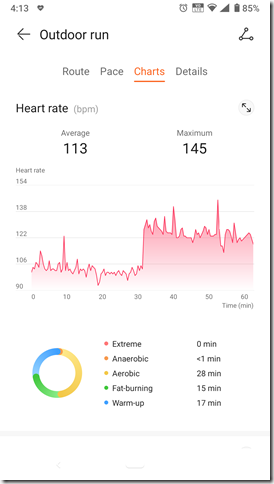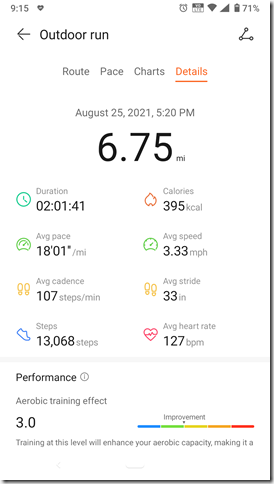This weekend, I took an overnight trip to Jacksonville. On the drive out there, I remembered that I had made this trip before, and it wasn’t all that long ago, because on that trip I had seen another wagon on the road of the same make and model as mine. Just so you know, my wagon is rare as golden shit. In the entire time I’ve known of its existence, I’ve seen one – only one – on the road.
Yeah, so, when I had that memory, I started thinking about how my last trip went. I couldn’t remember any of it. None. That pretty much told me the trip was uneventful and I wouldn’t want to do it again. But here I was, going out there again. Those who don’t remember history are doomed to repeat it. Uh huh.
For this trip I was pretty prepared. And now that it’s over, I think I now have a good protocol in place for my mega-runs. I utilize Android Auto in the wagon with my phone for the GPS and music features. The night before I left, I used Google Maps on my desktop computer and added all the stops I wanted to make as Starred locations. This gave me a list of the places I wanted to hit, and more importantly, it showed star pushpins on the map, which allowed me to plan my next stop or group of stops. When I was done with a place, I removed it from the list so I wouldn’t be confused as to where I’d been. It was a pretty good system.
Then, as I was stopping at shops, I did remember some of them, but there were a lot that were new to me, so I don’t think I planned my previous trip very well and that was what led to disappointment. Despite that, I still had a fair amount of disappointment on this trip. The first half of my stops were productive, but the last part were not. And I’ll dig into that in just a bit. I was let down by the dining options I was offered and the hotel experience was a little on the annoying side.
But anyway, what I really want to get out involves the used music stores I saw. I can sum this up in one statement: "Get your fucking shit together!"
A 2-store chain in Tampa that I frequent is the only one (outside of big businesses like 2nd & Charles or Barnes & Noble) that I’ve experienced that is doing things right. And by that, I mean, their store is organized, fully inventoried, and priced fairly and accurately. Now, I’m willing to let the guys that are running a shop in a flea market stall have a pass, because surely, they’re just hobbyists. But if you have a storefront, or a semblance of a storefront, you need to act like a business. Be clean, be organized.
The first place that left me infuriated was a guy operating essentially out of a warehouse. He sold records, CDs, some equipment, and probably anything else musical. I was only focused on the CDs. When I reached the warehouse door entrance, there were some CDs in a metal rack, which seemed like a paltry amount. But stepping in and looking around, I saw a literal wall of CDs in the back. I made a beeline right for it.
Once at the wall, I sized up the level of effort I was going to make. This is a wall of cubbies, probably 10 ft. tall (yes, well over my head – a stepstool was nearby) and probably 30 ft. wide. CDs in many cubbies were double-deep. The lighting was minimal, so you have to pull the CDs out to read anything. ALL UNSORTED. No sense in griping, just get to work.
After what felt like about 30 minutes, I had looked through 10% of what was there. I was seeing the same garbage over and over in different places, none of it was interesting to me (I found one cd). So I took a small break to rest my eyes. I turned away from the wall and gave the whole place a once over.
That wall… was a fraction of the CDs that were in that building. There were CDs everywhere around me, literally piled up. milk crates overflowing, U-Haul boxes filled and stacked, wire racks with small boxes stacked on top of each other. An entire other wall of CDs. An area you couldn’t even access with piles of U-Haul boxes, all full. No mistake, this is hoarder-level shit. I estimate there were probably 20k CDs in there.
I tried to work through it. I took breaks and walked to the other sections, which had even worse lighting, and tried to find anything other than my lowly single CD. I couldn’t do it. I took my CD up to the counter and told the owner, there’s too much stuff. His reply, "there’s another 15-16k in storage that we can’t even get in here." Holy. Shit.
I left the place furious. In the way of people who have a reverence for media (especially book people), I was simply offended with what I saw. The disregard for all those CDs. I would like to believe that any rational businessperson would also be offended at the lack of care and accountability of the inventory. This is what makes you money. You have no idea what you have, what its value is, or any plan for how to move it. It’s shitty business practice. And from a consumer standpoint, you can’t tell me a CD of Lady Gaga, priced at $5, has the same market value as one priced the exact same with a title of "14 Biker Tunes". The CD I bought was marked $5 (as I assume everything was), and I paid $4. Tax accountability? What’s that?
Enough of that hellhole. I moved on to the next place, which was supposedly mostly records, but had some CDs. I arrive there and it’s, well, sketchy. I am loath to use the term ghetto, because it’s lazy shorthand for "the poor, run-down, black neighborhood", and because it carries a stigma of danger, which I did not feel, despite the sadness all around me and being the only white person in miles. Maybe I’m stupid, blissfully aware, or maybe just not racist.
Anyway, when I entered this building, it was somehow worse than the warehouse. In the warehouse, you had room to move. In here, there was literally nowhere to go. All pathways were "walk-sideways" width. The primary one being blocked by a (fortunately for him) tall, thin black man. I navigated around him with the only path available to me and ended up behind the counter at the cash register. Well, no, this doesn’t seem right. I backed out and kind of make confused gestures to the man blocking my way. He crams himself into a small area to the side to let me go forward. I get past him and again, there’s nowhere to go.
So I’m stopped and seated in front of me is a harried black woman asking me what I want. I stammer out a question as to how I can look at some CDs when there’s no visible aisles, lanes, walkways, nothing, in sight. She replies that I can’t. I have to tell her what I’m looking for and she’ll go and see if they have it. Well, no, that doesn’t seem right, either. I explain that my tastes are all over and I need to browse to see if there’s anything I’m interested in. No, that doesn’t work for them. Very well, thank you for your time.
On the way back to the car,another man calls out to me and asks if I found anything. I was like, "Maaaannnn, I couldn’t even get in to see anything." He apologized and said he was looking to move a lot of stuff out soon to give more space. I said I’d keep him in mind and check back another time. I assume he was the owner. Sorry, bud, you have a lot more work ahead of you.
Those were the highlights (lowlights) of the trip. It gave me a renewed sensation that I should open a CD shop, just to show people how it should be done. but sadly, that’s probably not in the cards for me. I have a lot more of my own life to live first.
And now, the trip log: ~12 thrift shops, 3 booths in a flea market, and 3 used music stores. 4 target CDs found at the flea market, 2 CD of interest, 4 CDs bought for their case. 5 issues of an interesting magazine to scan. 2 CDs of interest from Daytona flea market on drive home. Total outlay was <$30

